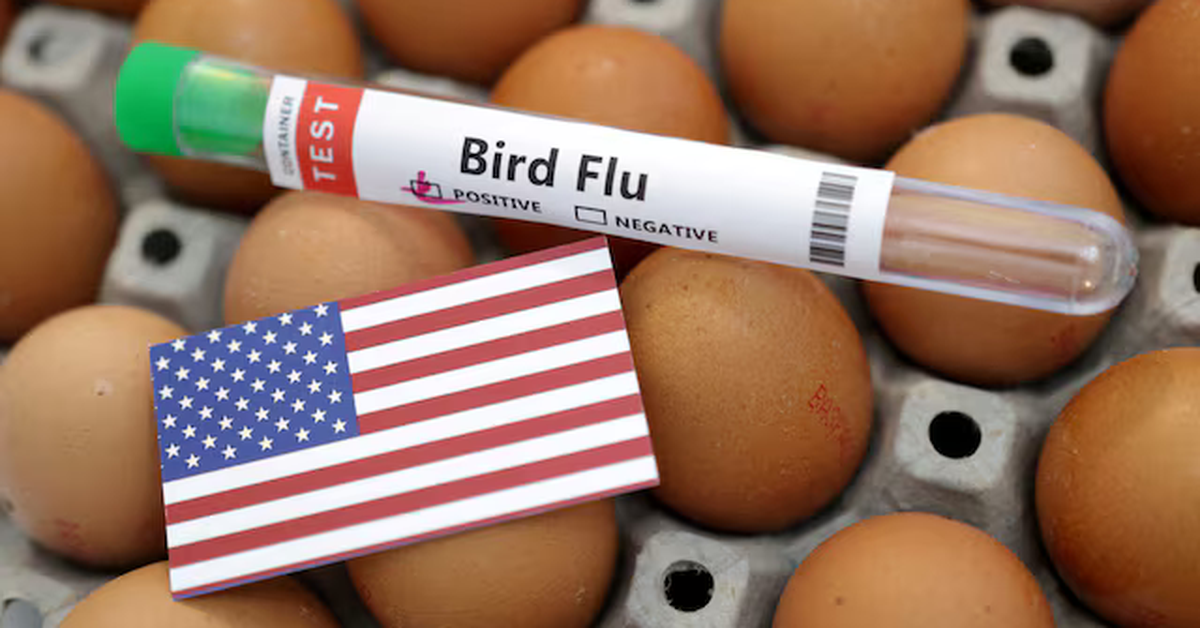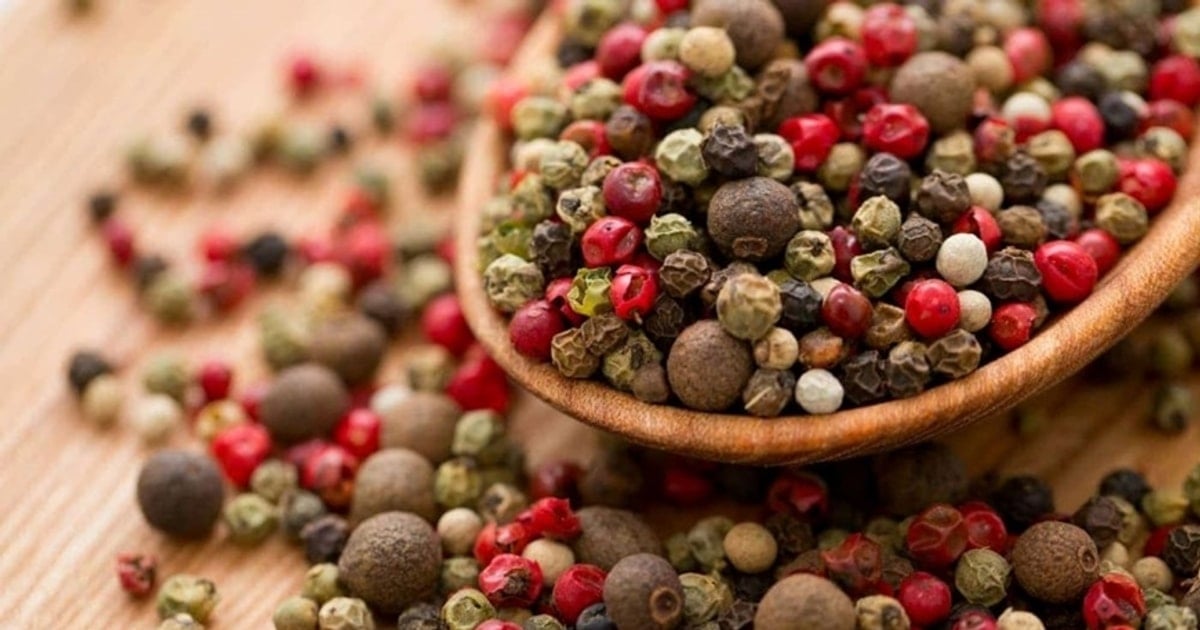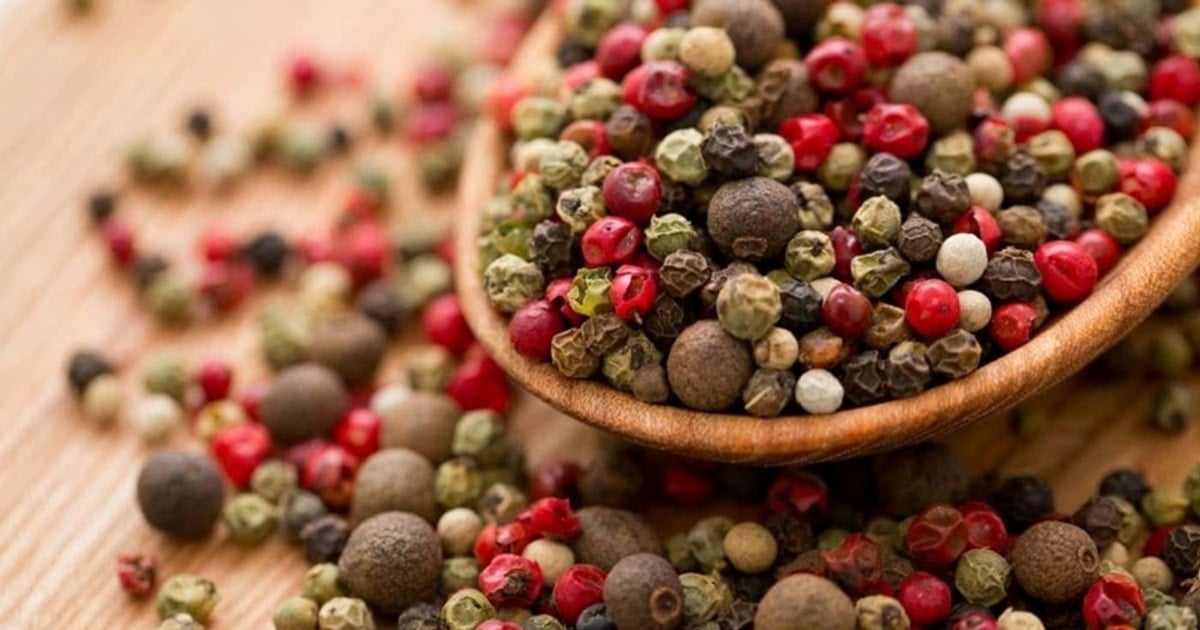Symptoms in humans
Over the past 20 years, outbreaks of avian influenza viruses have infected and killed tens of millions of poultry. They can combine with human influenza viruses to create a new virus with all the features of the two old viruses, easily creating a human influenza pandemic with a high rate of severe complications and a high risk of death.
Since the beginning of 2024, bird flu outbreaks have been recorded in 6 localities including Bac Ninh, Ninh Binh, Khanh Hoa, Ba Ria - Vung Tau, Long An and Tien Giang. This period is a favorable time for pathogens to develop. The Ministry of Health believes that in the coming time, there is still a potential risk of bird flu spreading to humans.
After many years of absence, bird flu has appeared sporadically in some localities. In particular, the weather during the transitional and unusually changing seasons is favorable for the development of this disease.
Avian influenza is a viral infectious disease that can infect not only birds, but also humans and other animals. Although there are several types of avian influenza, H5N1 is the first avian influenza virus to infect humans, causing avian influenza, also known as bird flu. The H5N1 virus has its main host in wild birds, mainly ducks and poultry such as ducks, turkeys, chickens, geese, and swans.
The disease is transmitted through contact with the droppings of infected birds or poultry or from secretions from the nose, mouth or eyes. Open-air markets and crowded and unsanitary places where eggs and birds are sold are places where the disease can easily spread to the community. Meat or eggs from infected birds or poultry that are not thoroughly cooked can also transmit avian influenza.
Signs and symptoms of bird flu begin within 2 to 7 days of infection, depending on the type of bird flu virus. In most cases, the symptoms of bird flu are similar to those of regular flu, including: Cough, fever, sore throat, muscle aches, headache, shortness of breath, etc. Some people may also have nausea, vomiting or diarrhea. And in some cases, a mild eye infection is the only sign of the disease.
Humans can be infected with influenza A viruses transmitted from animals, such as avian influenza A viruses, of types A (H5N1), A (H5N6), A (H7N9), A (H7N7), and A (H9N2), and swine influenza A viruses of types A (H1N1), A (H1N2), and A (H3N2).
However, influenza A/H5N1 has become a dangerous “killer” because this is a virus strain that can produce variants at a very fast rate, and can contain many genes from many different animal species. This virus can cause dangerous complications for human health.
According to Dr. Le Thi Nga, Thanh Nhan General Hospital (Hanoi), when infected with bird flu, patients will have high fever, cough, fatigue, coma, body aches... People infected with bird flu often have symptoms similar to those of the common flu in the initial stage, so they are easily confused and accompanied by some more dangerous signs such as more coughing, dry cough and cough with phlegm; continuous high fever; impaired consciousness, decreased alertness, decreased memory, fatigue, sore throat, red and hot skin, coma, headache, pain in the temples, pain in the eye sockets, bone and joint pain, body aches...
Therefore, as soon as the above signs appear, patients need to go for examination and testing to diagnose and treat the disease promptly; to avoid the risk of complications that can be life-threatening.
If not treated or intervened late, avian influenza can lead to complications such as ear, nose and throat infections - high in young children; damage to organs in the respiratory system such as pneumonia and bronchitis.
Many cases of patients infected with influenza lead to multiple organ failure such as liver, kidney, brain failure, and immune system failure due to a sharp decrease in the number of white blood cells in the blood. Other complications include myocarditis, pericarditis, lymphocytic meningitis, cerebral edema, disseminated intravascular coagulation, etc.

Treatment of patients infected with bird flu at the hospital. Photo: Archive.
Proactive prevention
To proactively prevent and control avian influenza from spreading to humans, the Ministry of Health recommends that people do not eat sick, dead poultry and poultry products of unknown origin; ensure food is cooked and water is boiled; and wash hands with soap before eating.
People should not slaughter, transport, buy or sell poultry and poultry products of unknown origin; when discovering sick or dead poultry, absolutely do not slaughter or use them, must immediately notify local authorities and veterinary units; limit contact, slaughter, and eating wild animals, especially birds.
Vaccination campaigns for poultry against influenza viruses actively prevent the spread of influenza viruses from wild birds to poultry. When influenza viruses are identified in poultry, infected poultry flocks should be destroyed to prevent further spread.
Avoid unprotected contact with wild birds, even those that appear healthy, and poultry that appear sick or dead, especially touching surfaces that may be contaminated with their saliva, mucus, or droppings.
When handling sick poultry, protective clothing such as gloves, medical masks and eye protection should be worn and hands should be washed with soap and water after contact. Health care workers who come into contact with sick people should also wear protective clothing, and medical masks should be worn for interventional or aerosol-generating procedures.
According to Dr. Le Thi Nga, when there are clinical symptoms, along with a history of contact with people with avian influenza or contact with poultry in an epidemic area, including travel to areas where avian influenza is circulating, it is necessary to suspect infection and immediately go to a medical facility capable of testing for influenza diagnosis for timely examination and diagnosis.

Bird flu is complicated, with the risk of spreading from poultry of unknown origin. Illustrative photo
It should be noted that the use of antibiotics when the patient does not have a bacterial infection is unnecessary and increases antibiotic resistance. Therefore, patients should not buy medicine on their own when they have symptoms of flu but should go to a medical facility for proper diagnosis and treatment.
“Basic supportive treatments for flu that people can do at home include resting, providing adequate water and nutrition, reducing fever with paracetamol when fever is above 38.5oC, and balancing fluids and electrolytes by drinking oral rehydration solution,” Dr. Nga informed.
According to Russian doctors, when a patient is infected with bird flu, the symptoms of the flu make the patient very uncomfortable and not want to eat or drink. If this condition persists, the body will become more tired and take longer to recover.
Therefore, it is necessary to ensure adequate provision of nutrients such as starch, protein, fat, vitamins and minerals. Dishes should be prepared in liquid form, rich in nutrients and easy to digest.
Patients should eat dishes such as chicken porridge, pork porridge, beef porridge, chicken soup, chicken soup with vegetables... to help them eat easily and absorb nutrients well. Chicken is a very good food for people with the flu because chicken contains many nutrients, vitamins and minerals, and does not contain much fat. Chicken is also an easy-to-digest food and has a very good effect in relieving colds.
In addition, people with flu are very tired and have reduced resistance, so supplementing foods rich in protein is very necessary for the body to recover. Protein is the main component that makes up new cells and tissues for the body.
To maintain a healthy body, the regeneration and repair of cells and tissues is extremely important. Protein also allows the body to produce antibodies that it needs to fight off invading viruses and bacteria. Healthy protein-rich foods include: Eggs, lean meat, poultry, fish, whole grains, beans, nuts, low-fat dairy products…
In addition, vitamin C helps stimulate the production of white blood cells that attack bacteria and viruses. In particular, vitamin C is a powerful antioxidant that helps protect immune cells to function more effectively, preventing disease-causing bacteria and viruses.
Therefore, vitamin C supplementation is very effective in preventing and reducing flu symptoms. The best sources of vitamin C are in fruits and vegetables such as: Citrus fruits; papaya, apple, pear, banana, guava, grapes, strawberries, kiwi, blueberries...; vegetables such as tomatoes, bell peppers, broccoli...
There is currently no specific treatment for avian influenza in humans, nor is there a vaccine to prevent the disease. The Ministry of Health said there is no evidence that influenza A (H5N1) is transmitted from person to person.
Source




![[Photo] Closing of the 11th Conference of the 13th Central Committee of the Communist Party of Vietnam](https://vstatic.vietnam.vn/vietnam/resource/IMAGE/2025/4/12/114b57fe6e9b4814a5ddfacf6dfe5b7f)

![[Photo] Overcoming all difficulties, speeding up construction progress of Hoa Binh Hydropower Plant Expansion Project](https://vstatic.vietnam.vn/vietnam/resource/IMAGE/2025/4/12/bff04b551e98484c84d74c8faa3526e0)






















































































Comment (0)